By Samantha Cart
Entrepreneurship plays a vital role in economic growth. According to the U.S. Bureau of Labor Statistics, in 2015 startups that were less than a year old created 3 million jobs. The National Small Business Associations’ 2016 Year-End Economic Report showed that small business owners were anticipating economic expansion in 2017 to increase significantly, the highest indicator reported since 2008.
As confidence increases across the nation, more West Virginians may be inspired to start their own businesses and join the ranks of these six successful Mountain State entrepreneurs. These visionaries are operating in a variety of markets, impacting their local economies and communities, creating jobs and living their dreams from the comfort of their home among the hills.
Donovan Beckett, DO
CEO, Williamson Health & Wellness Center
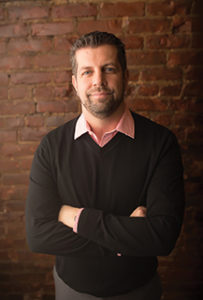 Tell us about your business.
Tell us about your business.
I have a medical practice I started in 2003. I then created a real estate company, followed by a nonprofit federally qualified health center.
What inspired you to start your own business?
When I first came back to West Virginia, I was employed for one year by a hospital, and I worked with two other physicians. I had things I wanted to do, like using electronic health records, but the physician who was the senior partner wasn’t really ready to make that jump. I decided to branch off on my own and start my own practice, which was called Comprehensive Health Solutions. This led to me buying my first property as a place to put my office. That’s how I started a real estate company, which is called Beckett Land Holdings.
I wanted to do things a little differently in my approach to medicine. I’m trained as an osteopathic physician, but I wanted to go in a different direction than what a traditional practice was doing. I started a concierge clinic for coal companies. I worked with different companies to create a clinic that would help them cut their costs but also give quality care. Around 2010, the economy started changing a little bit. People were losing jobs, didn’t have insurance or couldn’t afford their doctor visits, so I started a free clinic in my office. I was seeing patients in the free clinic one day a month, but then it got so busy. I was doing it so frequently, the idea came about to create a nonprofit and apply as a federally qualified health center, which I knew nothing about. It was a big leap for me being a for-profit guy and looking at a nonprofit facility.
Why did you choose to start your business in West Virginia?
I grew up in Williamson. My parents were here. The people in Williamson and Mingo County are some of the best people in the world. I saw it as an opportunity. Growing up, I had great neighbors, great teachers and great coaches and enjoyed my childhood. This was a way for me to give back to a community that had given me so many wonderful opportunities.
Tell us about the obstacles you faced and the resources that were available to help you.
Starting a medical practice is the one thing you’re not taught in medical school. We were taught how to treat patients but now how to run a business, so a lot of the stuff I had to learn on my own. I don’t know if there is any way to make that any better. I like the business aspect of medicine, but it was a big challenge starting a practice just a year out of residency. That was definitely an obstacle.
How has being located in West Virginia been beneficial to you?
For what I wanted to do, it was totally a benefit. I definitely wanted to be here. West Virginia has many challenges and a lot of health care disparities. I wanted to be somewhere where I could try to help a community make a change and impact its health care and wellness.
Tell us about the success you’ve had as a West Virginia-based business.
We’ve been able to create unity and collaboration within our community through starting the health clinic. We started with seven employees and five dozen square feet, and now we have over 60 employees and about 20,000 square feet at Williamson Health & Wellness. Not only that, but we’re able to use the revenue we create to help support a lot of outreach programs and also reinvest and create economic opportunities for our population. I think that’s my biggest success.
What advice would you give other West Virginians interested in entrepreneurialism?
Look for the resources. Do a lot of research on the front end to see what types of workforce training or other incentives are available. Work with the financial institutions to see what kind of opportunities are out there for businesses. If you’re a minority-owned business or woman-owned business, there are some distinct programs that could give you the opportunity to have additional resources.
That is definitely happening here in Mingo County. We have business coaches who are working with the Hatfield McCoy Trail System, so see if those types of resources are available to help you put together a legitimate business plan that is going to increase your chances of having a sustainable business. It’s important to do your due diligence on the front end to see what those resources are. If you’re starting a business in your lane, you have to look at ways to help cut costs or look at what other programs are out there that could help you offset some of those costs.
How can West Virginia encourage more entrepreneurs, and why is this important for the future of the state?
The tax code is one way of incentivizing people. Giving them the ability to take a risk and have a lower business tax would be advantageous. We also need to create opportunities that make younger people want to come in, not only to visit but also to start businesses.
Damian Ferek
President, The STICK Company, STICK Tattoo Company, CasketWraps.com
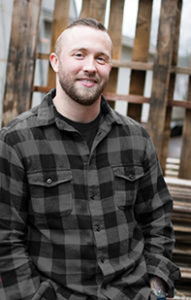 Tell us about your business.
Tell us about your business.
The STICK Company is a marketing and branding agency celebrating 10 years, STICK Tattoo Company is a distinct tattoo and body piercing shop, and CasketWraps.com helps create personalized memorials to honor the life of a loved one.
What inspired you to start your own business?
An entrepreneur at heart, I have had ideas of business startups that go back as far as my high school days. As my career progressed, I knew I was inspired and motivated to have my own company, but it took being fired from a job to give me the final push to dive into our agency full force. Various individuals and mentors inspired me to start my own company, but I feel I was most driven by just the pure challenge of it. I have learned that most entrepreneurs have a combination of being creative, passionate, hardworking and stubborn, and this combination of characteristics describes me perfectly.
Why did you choose to start your business in West Virginia?
In looking at various locations for the business, I had selected Morgantown for a number of strategic reasons. First, I felt the market was not oversaturated with the services I would be offering, and I also felt Morgantown had potential for building a solid customer base. I am from this area, so I was able to capitalize on existing networks and connections to give me a foot in the door with a few companies.
Tell us about the obstacles you faced and the resources that were available to help you.
One of my biggest obstacles in the start of our company was overcoming my young age and assumed lack of experience in launching the company at the age of 24. West Virginia is making great strides to become a more modern and supportive state, but there was still a very traditional, and often conservative, outlook on business—especially when you are promoting newer ideas such as websites, vehicle wraps and search engine optimization. However, there were still many progressive thinkers and businesses that not only recognized the value of these services but were also able to look past my age and appreciate the work and dedication that our team demonstrated every day.
Another obstacle I faced in our early years was the value and importance of having a great relationship with a bank. I don’t mean from a loan standpoint but just the overall obstacles of day-to-day financial dealings. It wasn’t until I found a local, community-based bank that shared a similar mindset that I finally understood that missing piece of our puzzle and the confidence and stability that then followed.
How has being located in West Virginia been beneficial to you?
When you are located and operate in West Virginia, the entire state welcomes and supports you. No matter which part of the state you are located in, my experience has shown that everyone wants to help and support one another. However, it’s not a state that tolerates the less-than-determined entrepreneur. Because our region is comprised of some of the hardest working individuals in the nation, there is not a high tolerance or acceptance if you’re not putting forth full effort. One thing is for sure—word travels extremely fast in West Virginia. If you do a great job or provide an exceptional service, that word will travel. On the contrary, if you do a bad job or provide poor services, that news will also spread quickly. I find this to be a true advantage because this environment forces you to be the best at what you do.
Tell us about the success you’ve had as a West Virginia-based business.
This year celebrates our 10-year anniversary for our first entity, The STICK Company. During that time, we have been fortunate to expand our business and launch a few additional companies in the region, such as STICK Tattoo Company, The West Virginia Energy Expo and CasketWraps.com. These companies are a direct result of the relationships and opportunities we were presented by doing business here in West Virginia. A great example was the launching of STICK Tattoo. During the early stages of development, we were initially turned down from securing a space in Suncrest Towne Centre due to our industry and the exclusivity that this center has with its tenants. However, because of our existing business relationships and the supportive nature of our region, we were able to present our intended business model and ultimately secure the perfect location for the company.
Another aspect of our company in which we’re fortunate is the various opportunities we have been presented to serve our community. One of the most rewarding aspects of the last 10 years, hands down, has been the opportunity to partner with some of the most amazing community organizations and all of the individuals that we’ve met as a result of those partnerships. Within the first year of our company, we quickly became involved with WVU Medicine’s Children’s Hospital and have continued to work and support this amazing group through various efforts, including their annual fundraising gala. Being able to see firsthand all of the behind-the-scenes work that goes into this amazing event and being able to help their team organize, participate in fundraising efforts and have a hand in the décor and theme was a dream come true for us. In addition to children’s hospital, we have continued to partner with other amazing organizations in our area such as Make-A-Wish, National Multiple Sclerosis Society, Ronald McDonald House, WVU Veterans and the Bartlett House. Being able to provide our passion to help others gives us purpose, and we thank those who have given us this opportunity.
What advice would you give other West Virginians interested in entrepreneurialism?
First, work hard. By that I mean absolutely and utterly work harder and smarter than anyone. Set goals and push yourself to reach those goals, and then set new goals and continue to work harder each day. Truly commit to doing everything you can to improve and better yourself and your company both mentally and physically. Being an entrepreneur is a 24/7/365 commitment that will absolutely put your grit to the test. In West Virginia, you are surrounded by some of the nation’s hardest working people and industries, ones that will ultimately recognize your efforts and appreciate you for that same commitment.
Second, trust your instincts. As an entrepreneur, you are faced with various opportunities and decisions on a daily basis, and learning to trust your own instincts can help guide the decisions you make. Do the research and confide in your trusted circle to gain the thoughts and opinions of others, but when it comes time to make your final decision, trust what your instincts are telling you. I would be lying if I said this has always worked in our favor, but that’s just part of the game and helps gain experience for future decisions. The only decisions we have regretted are the ones where we did not follow our own instincts but rather the opinions of others.
Third, get involved. West Virginia is a very community-oriented state, and our residents respond well to those who help give their time and resources to others. Not only do you have the opportunity to make a difference for others, but you also strengthen your network and relationships with other similar individuals throughout the region. We have always believed that in order for others to take notice of you, you must first take notice on how you can help others in your community.
Tara Price
Owner, Black Draft Distillery
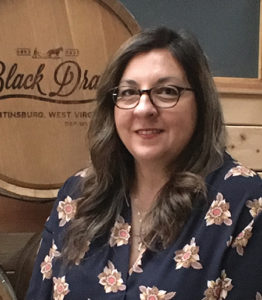 Tell us about your business.
Tell us about your business.
Black Draft Distillery is the first distillery in Martinsburg, WV, since the Prohibition. Founded in December 2013, Black Draft produces handmade, small-batch bourbon and whiskies using local, all-natural ingredients. The name Black Draft is in honor of the family’s draft horse, Biscuit; our farm; and the horse barn where the distillery resides.
Why did you choose to start your business in West Virginia?
We were excited about the prospect of making a product that is distilled in-state and growing a business from the ground up. My husband, Glen, who works full time in the federal government, was able to grow and expand the business while teleworking from home during the first years.
How has being located in West Virginia been beneficial to you?
The tourism of our state, especially in the Eastern Panhandle, has been a big draw for our walk-up business. Guests enjoy the opportunity to see how a small distillery operates on a daily basis. They see the heart and soul of how we make our products and how business is growing. Being located 80 miles from Washington, D.C., and Baltimore has its advantages with distribution also.
Tell us about the obstacles you faced and the resources that were available to help you.
Our biggest challenge is relative to being a small alcohol-producing business in this state. We’ve been very fortunate to have a lot of local and community support here in the Eastern Panhandle, but there is definitely a need for more support in state legislation to help us to grow and develop. In addition, we’ve found resources with the West Virginia Small Business Development Center and through our local U.S. Department of Agriculture office as a value-added producer to help with expansion efforts.
Tell us about the success you’ve had as a West Virginia-based business.
When we first started marketing our moonshine in late June 2014, we had no idea how much interest there would be in the state. Those first few months we struggled to keep up with demand just in the Eastern Panhandle with the smaller equipment we had. As we began to age our first batches of bourbon, it became very clear that the demand for the bourbon would be three times the market for moonshine, and we had to be prepared to meet it. In the first three weeks of releasing our bourbon to the public, we nearly sold out of our very first batch of Black Draft Straight Bourbon Whiskey, mostly just from walk-up sales here in the distillery.
What advice would you give other West Virginians interested in entrepreneurialism?
First, do your homework before you spend a dime. There are a lot of free resources from the Small Business Development Center. Reaching out to other similar businesses can save you a lot of time and costly mistakes. Second, grow at a pace that is challenging but not overwhelming to you. Growing and owning a business is a lot of hard work, and it can be tempting when a business is a thriving from the start to expand beyond your means too quickly. By staying with your own compass, you can weather through the storms of growing pains and find the challenges self-rewarding. Third, be unique. Produce something that will make you stand out from the crowd. Fourth, if being an entrepreneur is calling you, start today. It is a great time for starting a business in this state, and finding the right niche for you is the biggest hurdle you will face.
How can West Virginia encourage more entrepreneurs, and why is this important for the future of the state?
Small business, I believe, is the backbone of this country, and encouraging and supporting more entrepreneurship will open up more opportunities for West Virginians to change their and their family’s futures. Our state could do more to support and encourage entrepreneurship that could positively impact our economic strains of unemployment, gross national product and decreasing population.
Morgan Rhea Beals
Designer & Founder, Morgan Rhea
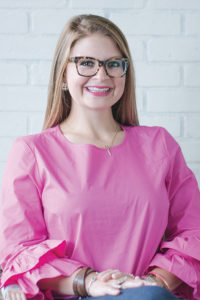 Tell us about your business.
Tell us about your business.
At Morgan Rhea, we hand-assemble luxury leather goods.
What inspired you to start your own business?
I always knew I wanted to be in the fashion industry, I just wasn’t sure where I fit in. So after high school I attended BridgeValley Community & Technical College and received an associate’s degree in fashion merchandising. Once I gained the basic knowledge of the fashion industry right here in West Virginia, I then attended Savannah College of Art and Design (SCAD) and received my bachelor’s degree in accessory design. This is where I learned the art of hand-making shoes and handbags. While it was a lot of late nights and hard work, it was totally worth it. Not many people can say they can make their own handbag or shoes. I am truly grateful I was able to learn from and meet top industry professionals in my field.
After graduating from SCAD, I won an international award for our Ronald Briefcase and got the opportunity to apprentice at the Coach headquarters in New York City. I was able to learn firsthand how things operated on a day-to-day basis. I started my journey in the winter of 2014 and have been thriving ever since. It’s such a joy coming to work every day and doing what I love. We put in a lot of hours, but that’s what you have to do being an entrepreneur, and I wouldn’t trade it for anything. Some days I am at the studio until 11 p.m. and most weekends, but it brings me so much joy hearing the journeys of our clients and how their new Morgan Rhea accessory helps express what they have been through and where they are going on their journey in life.
Why did you choose to start your business in West Virginia?
I chose to come back to West Virginia because of all of the support and love from my family and hometown. If I would have stayed in New York, I believe the support would have not been the same. I am inspired by our beautiful state, and I truly enjoy the changing of the seasons and being able to start new each year as summer turns into fall. I could have started my business anywhere, but I chose here because it’s my home. It’s where my journey began.
Tell us about the obstacles you faced and the resources that were available to help you.
An obstacle we have faced has been sourcing leather and hardware. If I was in New York City, I could just walk down the street to source my leather or buy a buckle. One day I was searching for a buckle for a messenger bag I was making and drove all around town and could not find what I needed. I have researched what the local stores offer, and I shop them when I can. I always try to shop local to help support fellow entrepreneurs.
Matt Ballard from the Charleston Area Alliance was the first person to reach out and say, “How can we help?” I am forever grateful for that. Tony Paranzino, owner of Tony The Tailor, was our first brick and mortar sale. He continues to mentor us today in showing us the value of social capital in our state. Justin Gaull, who was our business coach from the West Virginia Small Business Development Center, educated and led us through the journey of opening a business. We have had wonderful support from the community.
How has being located in West Virginia been beneficial to you?
Being located in West Virginia has been a large asset in making Morgan Rhea what it is today. My brother and sister-in-law moved here from Myrtle Beach, SC, and my husband from Vero Beach, FL. They could have moved anywhere but chose to come back to West Virginia to help make Morgan Rhea what it is today. My mother and father are always helping in the studio. My aunt has helped box bracelets on many occasions, and my grandfather helped in making the handmade shoebox we used when we designed John Legend’s bespoke shoes. It truly takes a village, and it has been beneficial having so much support. We are grateful for the many resources and help from everyone in the state and local community. The West Virginia Governor’s Office, Small Business Development Center, governor’s workforce grant and our local Toyota Hall at BridgeValley Community & Technology Center have given us tremendous support that I feel we would not have had if we had chosen anywhere else but here.
What advice would you give other West Virginians interested in entrepreneurialism?
I would say go for it. Just because sourcing is not always within reach, the tradeoff is worth it because I’m able to live here in the state I love. For me, that outweighs having my business anywhere else. If you can stay focused and believe in your goals, you can achieve them. Don’t be afraid to ask for help.
How can West Virginia encourage more entrepreneurs, and why is this important for the future of the state?
I think we need to focus on the future, and the future is entrepreneurs creating new ideas and bringing new and exciting businesses here. Entrepreneurs have helped shape our great state, and thinking outside of the box helps us grow and expand. I think it is important to showcase our West Virginia-made products to the world. We live in an amazing place, and we need to let the world know.
Justin Seibert
President, Direct Online Marketing
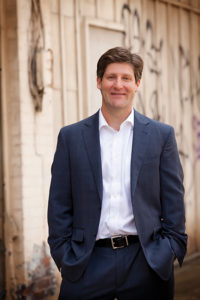 Tell us about your business.
Tell us about your business.
We are a digital marketing firm that helps clients from every populated continent grow confidently online. Specifically, we drive targeted traffic through search engines like Google to our clients’ websites and help convert it into leads or ecommerce sales.
What inspired you to start your own business?
Really, I started it out of need. My wife and I decided we wanted to raise our family in West Virginia, and there weren’t any digital marketing opportunities in West Virginia back in 2006. Rather than just remain an independent contractor, though, I knew I wanted to provide opportunities for other people to live and work here and positively impact Wheeling and West Virginia.
Why did you choose to start your business in West Virginia?
The move was all about family. All parents want their children to have a better childhood than they had. That’s not possible in my case, so I want them to have as good of a childhood as I had. My wife, Kristin, who’s from California has been amazingly supportive and loves what our community offers our three children as well as us.
Tell us about the obstacles you faced and the resources that were available to help you.
For my industry, the biggest obstacle is access to talent that has direct experience with the specific type of marketing we do. The West Virginia Department of Commerce provides resources to lessen the burden of training while giving us the flexibility to access the learnings we need for our niche. I can’t say enough food things about the state development office, Small Business Administration or U.S. Commercial Services. These agencies have been tremendous resources, especially in supporting our exporting efforts. The people running these agencies and the ones you interact with truly want to see you succeed and will do everything they can to help you.
How has being located in West Virginia been beneficial to you?
The access to resources and how tight-knit the statewide community is have been helpful. I’ve been able to serve on statewide committees such as the Governor’s Task Force on Early Childhood Education, which wouldn’t have happened in many other states, at least not at that stage in my career. Plus the cost of living makes doing business a lot easier. Also, the support and accessibility of our statewide business publications, especially West Virginia Executive, is something other states don’t have.
Tell us about the success you’ve had as a West Virginia-based business.
Since 2006, we’ve helped our clients sell into more than 140 countries around the world as one of Google’s top 200 Premier Google Partners worldwide. We’ve been awarded both the Entrepreneur of the Year and Exporter of the Year awards by the West Virginia Small Business Administration, sat on the West Virginia District Export Council as approved by the secretary of commerce and spoken at events throughout the U.S., Latin America and Europe.
What advice would you give other West Virginians interested in entrepreneurialism?
Expand your geography in your mind. Think nationally or internationally, and use the resources that are available to you. Turn what you do well into a repeatable, trainable process. Watch your bottom line, and really understand your profit drivers. Develop a great culture, and surround yourself with the best talent that fits that culture. Be responsive and attentive—these traits will set you apart to your clients. Over-communicate, especially internally. Take care of your community.
How can West Virginia encourage more entrepreneurs, and why is this important for the future of the state?
I’d encourage the state to keep regulations and taxes low. Entrepreneurs need to focus on making a great product or service, developing a great process for it, creating an enviable culture and driving a profit while doing so. We don’t need government making it harder on us. If there was one other piece, perhaps providing more networking and peer mentoring opportunities. Ultimately being an entrepreneur is a pretty lonely proposition in terms of who you can talk with about your business issues.
Judy Sheppard
President & CEO, Professional Services of America
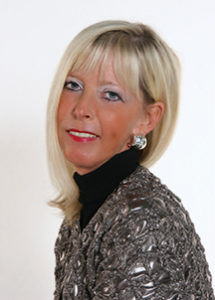 Tell us about your business.
Tell us about your business.
Professional Services America provides services in professional recruitment, contract employees and project and facility management.
What inspired you to start your own business?
When you’re working for another company and you put in numerous hours, you start looking at that and asking, “Should I start doing this on my own?” Starting my own company sounded advantageous.
Why did you choose to start your business in West Virginia?
I am a native of West Virginia.
Tell us about the obstacles you faced and the resources that were available to help you.
Starting as a woman-owned company 20-something years back—well, as you well know women still had not broken the glass ceiling. It was very hard because as a woman-owned small business, I had to work harder and smarter. I had to walk into every client’s site knowing everything I possibly could and be able to help them because I had a lot of competition and still do.
I have received help in the government sector with designations such as a woman-owned business, 8(a), HUBZone and GSA. These are vehicles you have to work toward. Now the 8(a) program is only good for nine years, but it gives you a jumpstart for government work.
How has being located in West Virginia been beneficial to you?
Being a West Virginia business has actually helped me more than anything. I will just tell it like it is—West Virginia likes to do business with West Virginia. We like to keep the money here. Senator Joe Manchin once said if we would all take care of our own backyard, everything would go great. That is very true. If we can partner, if we can work together and keep West Virginia strong and keep the dollars here—that’s what it’s about at the end of the day.
Tell us about the success you’ve had as a West Virginia-based business.
I believe Dupont really gave me an opportunity to grow and work with them on applications, accepting applications and testing and building a database. They had a lot of faith in me, and it worked perfectly. The second jumpstart for me was with Constellium, which has been wonderful to work with and a great advocate for me. When it comes to the government sector, the Armed Forces Retirement Home has been magnificent to work with. I had never done electronic medical records before, but they had the faith in what I could do and what I could produce and bring to them. All of these companies have helped me stay in West Virginia and be able to fund these jobs. Without them, I would be out of business.
What advice would you give other West Virginians interested in entrepreneurialism?
The best advice I can give anyone is to look for good teaming and strategic partners. Honesty and integrity are the most important things. If you can’t do something, tell them you can’t do it.
How can West Virginia encourage more entrepreneurs, and why is this important for the future of the state?
We need to encourage people to start businesses because that’s really what’s holding America together. West Virginia could also really help its people by encouraging West Virginia companies to do business with West Virginia companies. Another opportunity is small business roundtables where we can bring to the state’s attention what we’re struggling with and let them know how they can help us overcome some of these obstacles.



